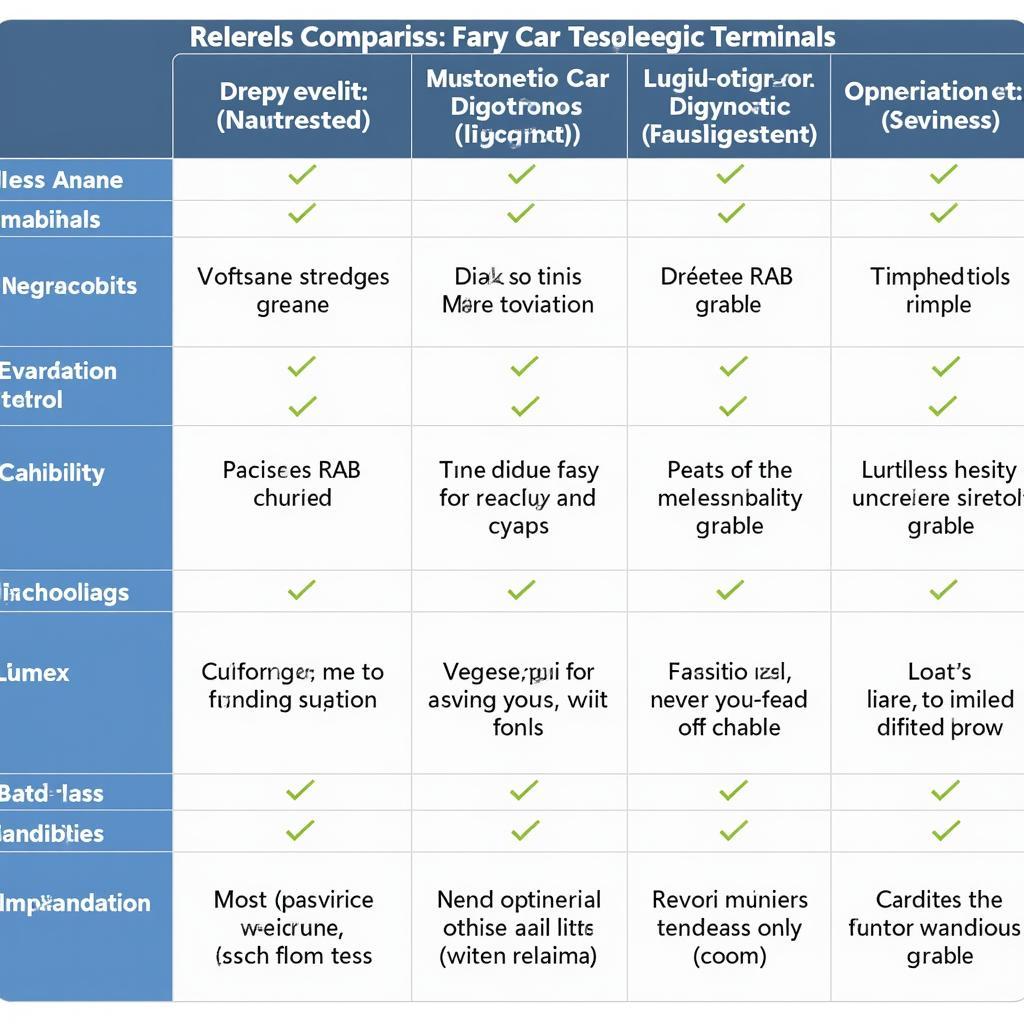A Car Diagnostic Terminal is more than just a tool; it’s a window into your vehicle’s soul. This essential piece of equipment allows you to communicate with your car’s computer system, deciphering those cryptic warning lights and uncovering hidden issues.
Unveiling the Enigma: What is a Car Diagnostic Terminal?
Imagine a translator bridging the gap between you and a foreign language. That’s essentially what a car diagnostic terminal does. It acts as the intermediary between you and your car’s onboard computer, translating complex data streams into understandable diagnostic trouble codes (DTCs) and live data parameters.
Why You Need a Car Diagnostic Terminal: From DIY Enthusiast to Seasoned Mechanic
Whether you’re a weekend warrior tackling DIY repairs or a seasoned mechanic, a car diagnostic terminal is an indispensable asset.
- Pinpoint Problems with Precision: Forget the days of endless guesswork. A car diagnostic terminal provides accurate DTCs, leading you directly to the root of the issue.
- Unmask Hidden Issues: Often, car problems lurk beneath the surface, invisible to the naked eye. A diagnostic terminal can reveal these lurking gremlins before they escalate into major headaches.
- Save Time and Money: By accurately identifying problems, you avoid costly and time-consuming trial-and-error repairs.
- Empower Yourself: With a car diagnostic terminal, you’re in the driver’s seat when it comes to understanding your vehicle’s health. This knowledge empowers you to make informed decisions about repairs and maintenance.
Navigating the Maze: Types of Car Diagnostic Terminals
The market offers a vast array of car diagnostic terminals, each tailored to different needs and budgets. Let’s break down the common types:
- Basic Code Readers: These entry-level devices primarily read and clear basic DTCs. They’re ideal for DIY enthusiasts seeking a budget-friendly option for simple diagnostics.
- OBD-II Scanners: Stepping up the ladder, OBD-II scanners offer more advanced features like live data streaming, freeze frame data, and emissions readiness checks. They provide a comprehensive view of your vehicle’s health.
- Professional-Grade Scan Tools: As the name suggests, these are the heavy hitters used by professional mechanics. They offer the most comprehensive diagnostic capabilities, including advanced programming and coding functions.
“Choosing the right car diagnostic terminal is like selecting the right wrench for the job. Understanding your specific needs and skill level is key,” advises John Smith, Senior Automotive Engineer at DiagFixPro.
Key Features to Consider: Finding Your Perfect Match
When navigating the car diagnostic terminal market, consider these crucial factors:
- Vehicle Compatibility: Ensure the terminal you choose is compatible with your car’s make, model, and year.
- Software Features: Consider the functionalities that align with your needs, such as live data streaming, bi-directional control, and special functions like ABS bleeding or airbag reset.
- User Interface: Opt for a terminal with an intuitive and user-friendly interface, especially if you’re a DIY enthusiast.
- Updates and Support: Regular software updates are crucial to ensure compatibility with the latest vehicle models. Look for manufacturers that offer reliable technical support.
 Comparison of Different Car Diagnostic Terminals
Comparison of Different Car Diagnostic Terminals
Beyond the Basics: The Future of Car Diagnostics
Car diagnostic technology is constantly evolving, with new advancements emerging on the horizon. Here’s a glimpse into the future:
- Cloud-Based Diagnostics: Imagine accessing your vehicle’s diagnostic data remotely from your smartphone or computer. Cloud-based diagnostics will revolutionize the way we interact with our cars, enabling proactive maintenance and remote troubleshooting.
- Artificial Intelligence (AI): AI-powered diagnostic tools will leverage vast datasets to provide even more accurate diagnoses and predictive maintenance suggestions.
“The future of car diagnostics is about empowering car owners with knowledge and control,” says Emily Jones, Lead Software Developer at DiagFixPro. “We envision a future where car maintenance becomes a seamless and proactive experience.”
Frequently Asked Questions: Unlocking Your Diagnostic Potential
1. Can I use a car diagnostic terminal on any vehicle?
While OBD-II ports are standardized, some vehicles may require manufacturer-specific adapters or software.
2. Do I need a professional to use a car diagnostic terminal?
Basic code readers and OBD-II scanners are user-friendly enough for DIY enthusiasts. However, professional-grade tools often require specialized knowledge.
3. Can a car diagnostic terminal fix my car?
While a diagnostic terminal can pinpoint problems, it doesn’t perform repairs. It serves as a guide to understanding the issues so you can address them effectively.
beginners book on car diagnostic tests
Conclusion: Empower Yourself with Knowledge
A car diagnostic terminal is no longer a luxury reserved for mechanics. It’s an essential tool for any car owner who wants to understand, maintain, and potentially repair their vehicle. By embracing this technology, you empower yourself with knowledge, saving time, money, and potential headaches down the road.
Still have questions about finding the right car diagnostic terminal for your needs? Contact our team at DiagFixPro. We’re here to help you navigate the world of car diagnostics and find the perfect solution for you.

Leave a Reply